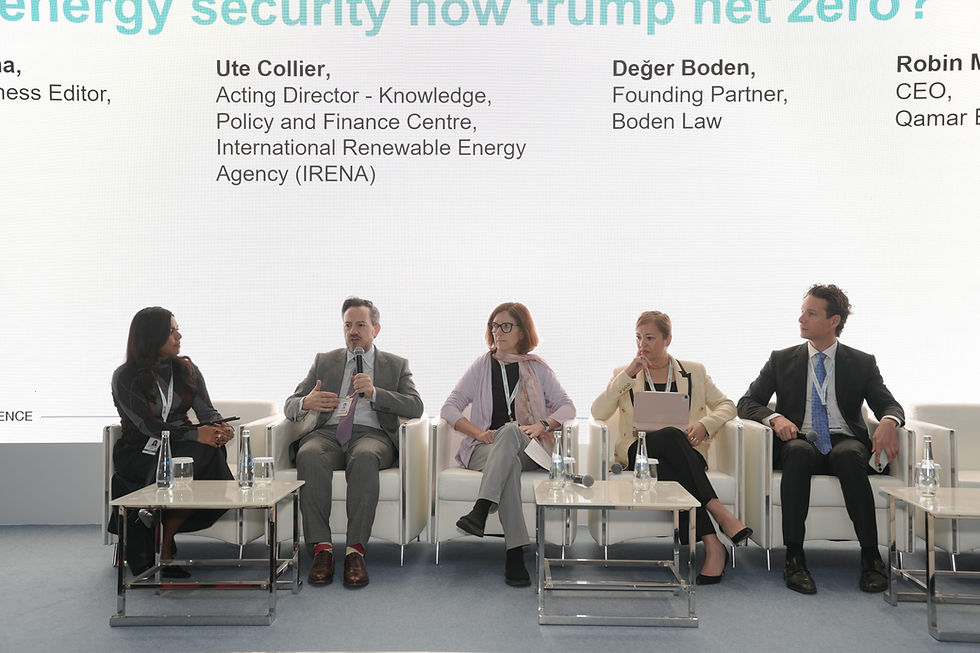WETEX 2023: Middle Eastern governments have the tools to finance green transition
- Ethan Fulton

- Nov 22, 2023
- 2 min read
Updated: Nov 27, 2023
Governments in the Middle East have an opportunity to rapidly mobilize the finance needed to shift their economies away from fossil fuels and reap the economic benefits of the green transition, Zest Associates Managing Director Jeffrey Beyer said at the 25th annual WETEX conference in Dubai.
The theme of this year's WETEX, held from November 15-17, was "At the forefront of sustainability" centered on opportunities to address climate action in the Middle East and accelerate the energy transition.

In his presentation “Financing a Green Transition in the Middle East”, he discussed how regional governments can mobilize sustainable finance and channel capital to shape investment conditions.

Key takeaways from Beyer's presentation:
1) Regional awareness is crucial to accelerate the green transition.
In the Middle East, awareness of climate risks is high, but awareness of climate opportunities in the energy transition has developed less.
Governments should leverage awareness campaigns to engage citizens and support knowledge exchange — for example, the Arab Youth Council for Climate Change provides a platform for youth climate advocacy.
2) State-owned enterprises and sovereign wealth funds are a major asset for accelerating the energy transition and have markedly improved their ESG rankings since 2020.
The GCC is home to some of the world's largest sovereign wealth funds — with Abu Dhabi, Kuwait, Saudi Arabia and Qatar founding the One Planet Sovereign Wealth Funds Initiative to integrate green growth and acknowledge climate risk.
GCC countries are also home to large state-owned enterprises that are currently heavy emitters but can be directed to support national net-zero strategies through a defined project pipeline.
3) The region has many successful examples of accelerating green finance that can be replicated in neighbouring countries.
Green bonds are flourishing, green investment strategies are materializing and taxonomies are rapidly being developed
The region does not need to 'import' successful strategies from Europe or the Americas, but can instead look to nearby markets to see what has worked in the Arab context


Comments